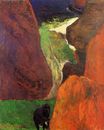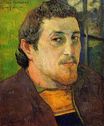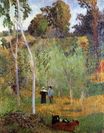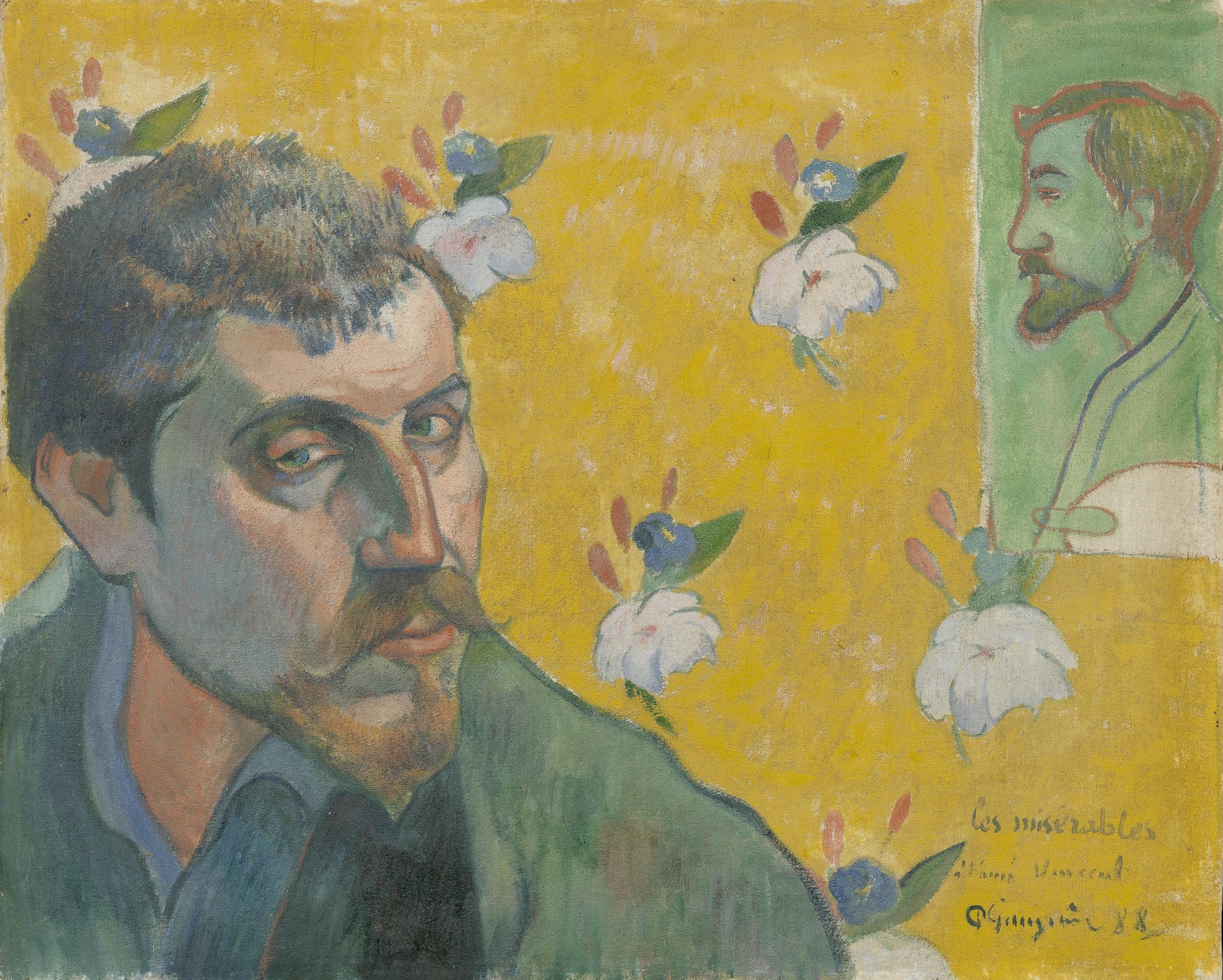Paul Gauguin - Self-Portrait Dedicated to Vincent van Gogh. Les Miserables 1888
 |
 |
 |
 |
 |
 |
 |

Self-Portrait Dedicated to Vincent van Gogh. Les Miserables 1888
45x55cm oil/canvas
Van Gogh Museum, Amsterdam, Netherlands
The image is only being used for informational and educational purposes
<< Previous G a l l e r y Next >>
From Van Gogh Museum, Amsterdam, Netherlands:
Van Gogh knew that Japanese printmakers often exchanged work with one another. The idea appealed to him, so he suggested that he, Paul Gauguin and Emile Bernard should do the same: ‘It clearly proves that they liked one another and stuck together, and that there was a certain harmony among them [. . .] The more we resemble them in that respect, the better it will be for us.’ His friends both sent self-portraits, with a likeness of the other artist in the background.
Gauguin painted himself in the guise of Jean Valjean, the main character of Victor Hugo’s novel Les Misérables, equating the vibrant and loving fictional outcast with the misunderstood artists of his time. He wrote: ‘By doing him with my features, you have my individual image, as well as a portrait of us all, poor victims of society, taking our revenge on it by doing good’. The cheerful floral pattern on the wall was Gauguin’s way of testifying to ‘our artistic virginity’.
Van Gogh was impressed by the portrait’s melancholy character. He described the shadows in Gauguin’s face as ‘lugubriously tinged with blue’ and noted that he looked ill and tormented.’